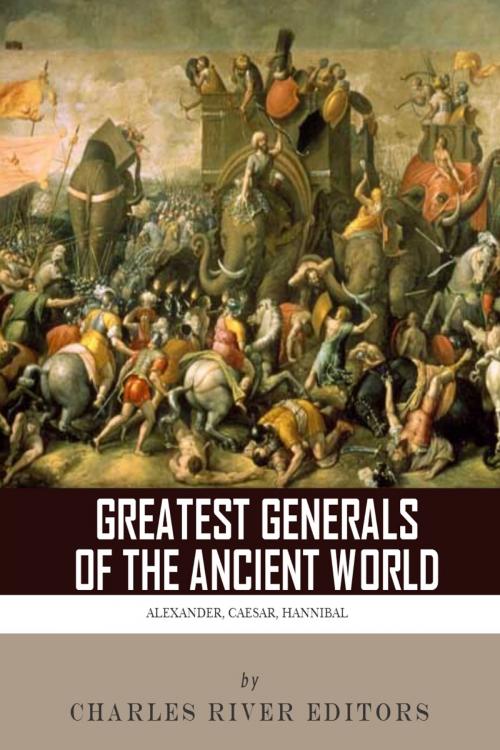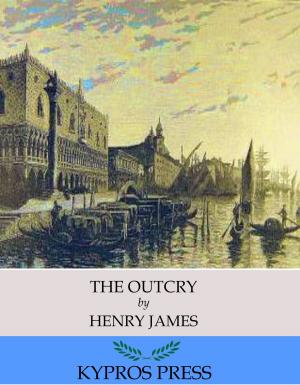The Greatest Generals of the Ancient World: The Lives and Legacies of Alexander the Great, Hannibal and Julius Caesar
Nonfiction, History, Ancient History, Greece, Rome, Biography & Memoir, Historical| Author: | Charles River Editors | ISBN: | 9781475319842 |
| Publisher: | Charles River Editors | Publication: | November 24, 2012 |
| Imprint: | Language: | English |
| Author: | Charles River Editors |
| ISBN: | 9781475319842 |
| Publisher: | Charles River Editors |
| Publication: | November 24, 2012 |
| Imprint: | |
| Language: | English |
*Includes pictures depicting important people, places, and events in the lives of Alexander, Hannibal and Caesar*Discusses little known facts about each man and whether some of the legends and myths about them were true.*Includes a Table of Contents covering each general.*Includes a bibliography on Alexander the Great and Hannibal for further reading. Over the last 2,000 years, ambitious men have dreamed of forging vast empires and attaining eternal glory in battle, but of all the generals who took steps toward such dreams, none were ever as successful as antiquity's three most famous military leaders. For thousands of years, leaders across the globe dreamed of emulating or rivaling the accomplishments of Julius Caesar, but Caesar's way of warfare and the organization of the Roman legions at the time were owed to Hannibal, whose crossing of the Alps and decisive victories over the Romans in Italy still amaze military officers today. And Caesar himself found personal inspiration in Alexander the Great (356-323 B.C.), the Macedonian King who managed to stretch an empire from Greece to the Himalayas in Asia at just 30 years old. It took less than 15 years for Alexander to conquer much of the known world. Each general also died untimely deaths. Alexander died of still unknown causes at the height of his conquests, when he was still in his early 30s. Although his empire was quickly divided, his legacy only grew, and Alexander became the stuff of legends even in his own time. Alexander was responsible for establishing 20 cities in his name across the world, most notably Alexandria in Egypt, and he was directly responsible for spreading Ancient Greek culture as far east as modern day India and other parts of Asia. For the ancient world, Alexander became the emblem of military greatness and accomplishment; it was reported that many of Romes greatest leaders, including Pompey the Great, Augustus, and Caesar himself all visited Alexanders tomb in Alexandria, a mecca of sorts for antiquitys other leaders.Hannibal has the distinction of being the only man who nearly brought Rome to its knees before its decline almost 700 years later. Rome never suffered a more horrifying defeat in its history than at Cannae, and indeed, Hannibal nearly rewrote the course of Western history during the Second Punic War. Even today there remains great debate on just how he accomplished his masterful invasion of Italy across the Alps. Since his army included war elephants, historians still argue over exactly where and how he crossed over 2,000 years after he managed that incredible feat. Hannibal will always be listed among historys greatest generals, and his military campaign in Italy during the Second Punic War will always be studied, but part of the aura and mystique surrounding the Carthaginian legend is that there is still a lot of mystery. Possibly the most important man of antiquity, and even all of history, was Julius Caesar. Alexander Hamilton, the famous American patriot, once remarked that the greatest man who ever lived was Julius Caesar. Such a tribute, coming from one of the Founding Fathers of the quintessential modern democracy in reference to a man who destroyed the Roman Republic, is testament to the enduring mark that Caesar left upon the world. The ultimate conqueror, statesman, dictator, visionary, and opportunist, during his time in power Caesar expanded the borders of Rome to almost twice their previous size, revolutionized the infrastructure of the Roman state, and destroyed the Roman Republic for good, leaving a line of emperors in its place. The Greatest Generals of the Ancient World chronicles the lives and battles of the famous generals. Along with pictures of important people, places, and events, you will learn about Alexander, Hannibal, and Caesar like you never have before.
*Includes pictures depicting important people, places, and events in the lives of Alexander, Hannibal and Caesar*Discusses little known facts about each man and whether some of the legends and myths about them were true.*Includes a Table of Contents covering each general.*Includes a bibliography on Alexander the Great and Hannibal for further reading. Over the last 2,000 years, ambitious men have dreamed of forging vast empires and attaining eternal glory in battle, but of all the generals who took steps toward such dreams, none were ever as successful as antiquity's three most famous military leaders. For thousands of years, leaders across the globe dreamed of emulating or rivaling the accomplishments of Julius Caesar, but Caesar's way of warfare and the organization of the Roman legions at the time were owed to Hannibal, whose crossing of the Alps and decisive victories over the Romans in Italy still amaze military officers today. And Caesar himself found personal inspiration in Alexander the Great (356-323 B.C.), the Macedonian King who managed to stretch an empire from Greece to the Himalayas in Asia at just 30 years old. It took less than 15 years for Alexander to conquer much of the known world. Each general also died untimely deaths. Alexander died of still unknown causes at the height of his conquests, when he was still in his early 30s. Although his empire was quickly divided, his legacy only grew, and Alexander became the stuff of legends even in his own time. Alexander was responsible for establishing 20 cities in his name across the world, most notably Alexandria in Egypt, and he was directly responsible for spreading Ancient Greek culture as far east as modern day India and other parts of Asia. For the ancient world, Alexander became the emblem of military greatness and accomplishment; it was reported that many of Romes greatest leaders, including Pompey the Great, Augustus, and Caesar himself all visited Alexanders tomb in Alexandria, a mecca of sorts for antiquitys other leaders.Hannibal has the distinction of being the only man who nearly brought Rome to its knees before its decline almost 700 years later. Rome never suffered a more horrifying defeat in its history than at Cannae, and indeed, Hannibal nearly rewrote the course of Western history during the Second Punic War. Even today there remains great debate on just how he accomplished his masterful invasion of Italy across the Alps. Since his army included war elephants, historians still argue over exactly where and how he crossed over 2,000 years after he managed that incredible feat. Hannibal will always be listed among historys greatest generals, and his military campaign in Italy during the Second Punic War will always be studied, but part of the aura and mystique surrounding the Carthaginian legend is that there is still a lot of mystery. Possibly the most important man of antiquity, and even all of history, was Julius Caesar. Alexander Hamilton, the famous American patriot, once remarked that the greatest man who ever lived was Julius Caesar. Such a tribute, coming from one of the Founding Fathers of the quintessential modern democracy in reference to a man who destroyed the Roman Republic, is testament to the enduring mark that Caesar left upon the world. The ultimate conqueror, statesman, dictator, visionary, and opportunist, during his time in power Caesar expanded the borders of Rome to almost twice their previous size, revolutionized the infrastructure of the Roman state, and destroyed the Roman Republic for good, leaving a line of emperors in its place. The Greatest Generals of the Ancient World chronicles the lives and battles of the famous generals. Along with pictures of important people, places, and events, you will learn about Alexander, Hannibal, and Caesar like you never have before.















